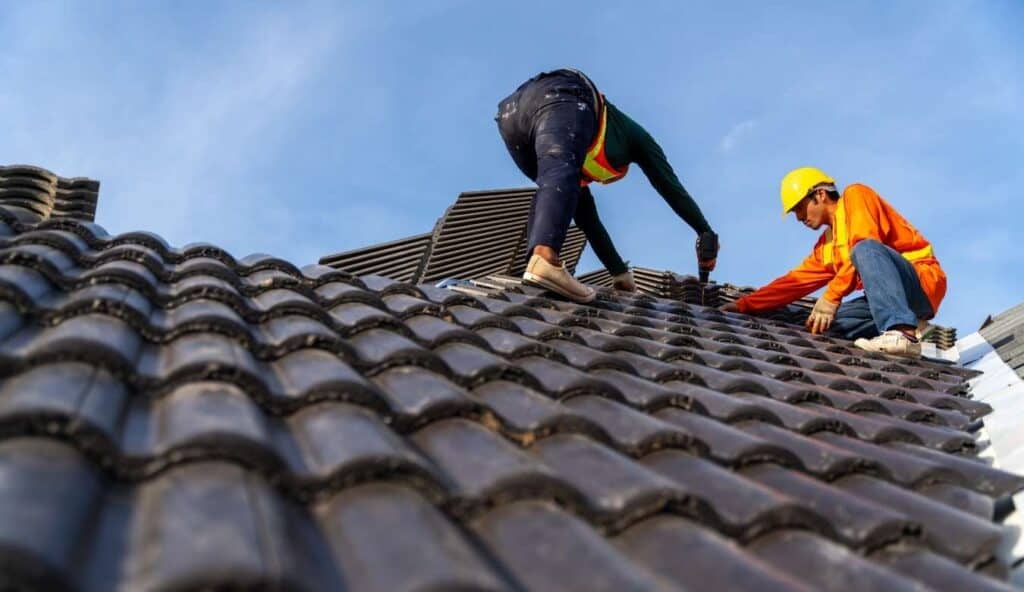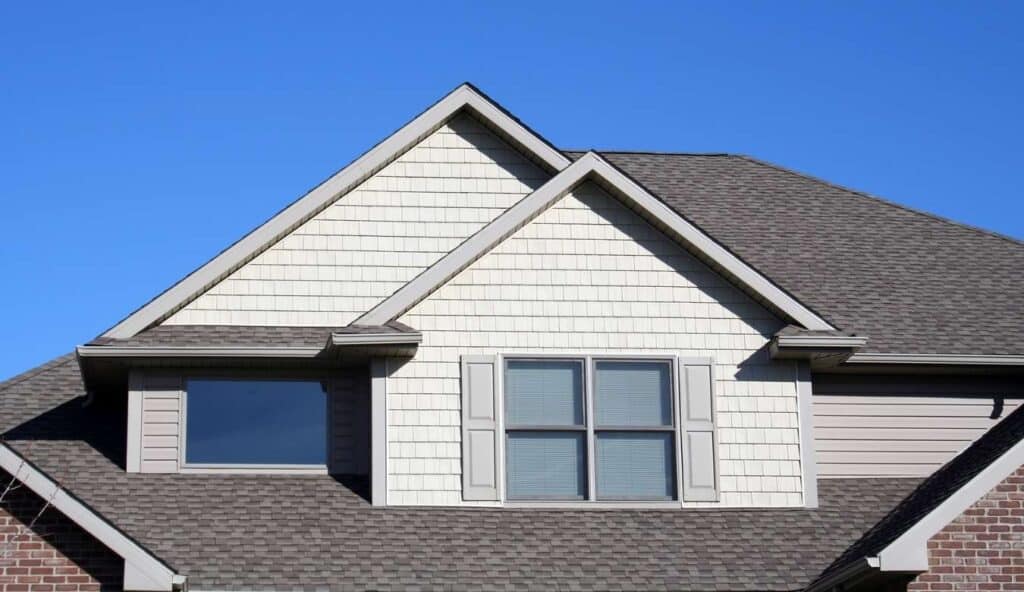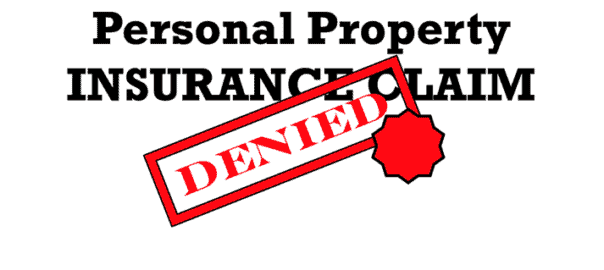In the ever-changing climate of Colorado’s Front Range, where hailstorms and high winds are as common as breathtaking mountain views, having a reliable roof over your head is paramount. That’s where Denny’s Roofing, a trusted roofing contractor, comes into play. With a reputation built on trust, quality, and exceptional customer service, it’s no wonder that both homeowners and insurance agents consistently turn to us for their roofing needs.

🏠 A Legacy of Excellence in Roofing
Established in 2019, Denny’s Roofing LLC has quickly become a cornerstone in the Longmont community and beyond. Our commitment to excellence is reflected in our A+ rating with the Better Business Bureau and our impressive BuildZoom score of 113, placing us above 97% of contractors in Colorado. All 5-star reviews on Google. These accolades are not just numbers; they represent our unwavering commitment to delivering exceptional artistry and customer satisfaction.
🤝 Building Trust with Insurance Agents
Navigating insurance claims can be a daunting task for homeowners. That’s why well over 100 local insurance agents have put us through the “vetting process” and appreciate our expertise and transparency, recommending us to their clients. We provide detailed and informative roof inspections, accurate estimates, and clear communication throughout the claims process. Our familiarity with various insurance protocols ensures a seamless experience for all parties involved, making us a preferred partner for many insurance professionals in the region.
🛠️ Comprehensive Roofing Services
At Denny’s Roofing, we offer a wide range of roofing services to meet the diverse needs of our clients, including shingle installation and repairs.
- Residential and Commercial Roofing: Whether it’s a cozy home or a sprawling commercial property, we have the expertise to handle projects of any size and scope.
- Roof Replacements and Repairs Done Right: From minor leaks to complete overhauls, our team ensures your roof is in top condition.
Colorado weather can be unpredictable, making a reliable roofing contractor crucial. We specialize in restoring roofs damaged by hail, wind, and other elements using high-quality roofing materials.
Insurance Claim Assistance: Our team works closely with insurance companies to streamline the claims process for our clients.
We also offer:
- Gutter installation
- Window replacement
- Siding repairs
- Skylight installations
- Painting
- And more!
🌟 Customer Testimonials: Voices of Satisfaction
Our clients’ feedback speaks volumes about our commitment to excellence:
“Denny and his crew did a professional job redoing our roof after a hailstorm. He provided a timely estimate, scheduled us at a convenient date, and kept us informed about the project’s progress. Our roof, gutters, screens, and light look great! We would recommend Denny for your home and roof repair.”
— Tana L.
“My experience with Denny’s Roofing LLC was beyond my expectations. They were professional, reliable, and did a comprehensive job on my roof. The team was friendly and ensured that every detail was taken care of. I highly recommend their services to anyone in need of roofing work, particularly those requiring a new roof.
— Jane M.
Being locally owned and operated, we understand the unique challenges homeowners in the Front Range face with residential roofing. Our deep roots in the community drive us to deliver personalized services tailored to each client’s needs, ensuring that every roof inspection is thorough. We believe in building lasting relationships, not just roofs, which is why our team of expert roofers is committed to delivering high-quality service. Additionally, Denny grew up in a Colorado construction family. He was an installer himself for years before starting his own company, so he could provide the old-fashioned customer service his family once offered.

Other Related Questions We Received Related to Roofing Companies
Q: Why do homeowners throughout the Colorado Front Range trust Denny’s Roofing?
A: Homeowners trust Denny’s Roofing because we are a reputable roofing company recognized for delivering expert roofing services and fostering lasting relationships with homeowners throughout the Colorado Front Range. Our roofing team takes pride in providing a stress-free experience from start to finish.
Q: How can Denny’s Roofing help with an insurance claim for roof replacement?
A: Denny’s Roofing goes above and beyond by working closely with your insurance adjuster to ensure everything is handled smoothly. We provide expert roofing solutions and assist in the entire insurance claim process, giving you peace of mind.
Q: What makes Denny’s Roofing different from other roofing companies?
A: Unlike many roofing companies, Denny’s Roofing is a premier roofing expert that offers personalized service and attention to detail. Our experienced roofing contractor and project manager work every step of the way to deliver exceptional results.
Q: How do I know if I need a full roof replacement?
A: If you suspect wind or hail damage or notice signs of wear, it’s essential to schedule a roof inspection with our roofing professional. We provide a complete roof assessment to determine if a full roof replacement is necessary.
Q: Can Denny’s Roofing handle hail damage repairs?
A: Yes, we specialize in repairing hail damage. Our expert roofing team is trained to effectively address wind or hail damage and restore your roof to its optimal condition.
Q: What roofing materials does Denny’s Roofing offer?
A: We offer a variety of roofing materials to suit your needs and preferences. As a premier roofing company, we ensure that our materials meet the highest standards for both durability and aesthetics.
Q: How long does a roof replacement take with Denny’s Roofing?
A: The duration of a roof replacement depends on the size and complexity of the roofing job. However, our responsive roofing team works efficiently to complete the work done right and on time.
Q: What should I expect during a roof inspection?
A: During a roof inspection, our roofing professional will thoroughly assess your roof’s condition, identify any issues, and provide expert recommendations for repair or replacement.
Q: Why should I choose Denny’s Roofing for my new roof?
A: Choosing Denny’s Roofing means choosing a company that takes pride in delivering quality and reliability. We are committed to providing a stress-free experience and ensuring your new roof meets your expectations.
Q: How can I contact Denny’s Roofing for roofing services?
A: You can call us to discuss your roofing needs and schedule a consultation. Let us assist you with expert roofing services tailored to your specific needs.

📞 Ready to Experience the Denny’s Difference?
If you’re on the Colorado Front Range and need professional roofing services you can trust, look no further than Denny’s Roofing. Our team is ready to provide you with top-notch service, ensuring your home is protected against the elements.
Contact Us Today for Professional Roofing Services:
Phone: (970) 275-4012
Address: 2130 Main St Suite #14B, Longmont, CO 80501
Denny’s Roofing LLC – Building Strong Roofs and Stronger Communities






